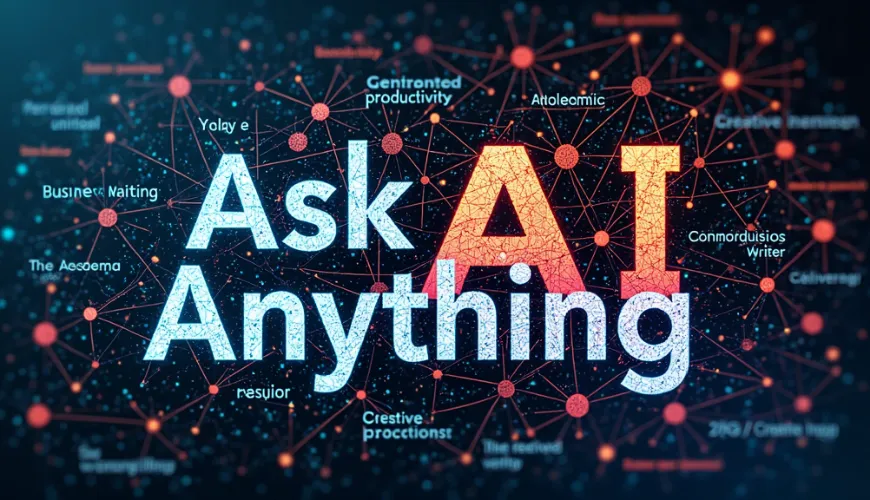Artificial intelligence (AI) is no longer just a futuristic concept or reserved for tech-savvy individuals. It's here, integrated into our daily lives more than ever before. From recommending your next movie to assisting with professional writing or coding tasks, AI is truly transforming how we interact with information.
Now, imagine being able to ask AI anything—from how to cook a perfect risotto to solving a complex math problem, or even generating fresh marketing strategies for your startup. With platforms like Claila, this is not only possible but incredibly easy and intuitive.
Claila offers access to some of the most powerful AI tools available today, including ChatGPT, Claude, Grok, and Merlin. Each AI model brings its own strengths and capabilities, making Claila a versatile productivity partner whether you're a student, entrepreneur, creative, or professional.
And the best part? You can interact with these language models through a simple chat interface, asking anything that comes to your mind.
Ask AI Anything:
Why Ask AI Anything?
Modern AI tools are trained on vast datasets and can understand both simple and complex inquiries. This gives users the ability to:
- Solve problems faster
- Generate new creative ideas
- Automate repetitive tasks
- Discover information they might not find easily through traditional search engines
Whether you're brainstorming blog topics, looking for inspiration for your next novel, or need help with legal wording, the phrase "ask AI anything” is more than a catchy slogan—it's a practical solution for modern challenges.
Meet the AI Powerhouses on Claila
Claila brings together several leading AI models in one intuitive interface. Here's a quick overview of each:
ChatGPT
Powered by OpenAI, ChatGPT is widely known for its natural conversation abilities. It can write essays, debug code, generate creative stories, and even simulate interviews.
Real-life use: A freelance writer can use ChatGPT to generate blog post drafts and headlines in minutes, significantly reducing workload.
Claude
Developed by Anthropic, Claude is known for being helpful, honest, and harmless. It's particularly strong in providing thoughtful and ethical answers, making it ideal for sensitive queries or philosophical discussions.
Real-life use: A teacher might ask Claude for ways to explain complex concepts like climate change to middle school students.
Grok
Developed by xAI (founded by Elon Musk), Grok is designed to answer questions about the world in a witty and contextual manner, especially leveraging data from X (formerly Twitter). It's excellent for users looking for up-to-date social trends or culturally relevant content.
Real-life use: A social media manager might use Grok to generate real-time content ideas based on current trends and hashtags.
Merlin
Merlin integrates multiple AI models together and focuses on productivity and general assistance. It's like having a digital Swiss Army knife that adapts depending on your task—whether it's summarizing PDFs, generating images, or writing structured emails.
Real-life use: A business executive can use Merlin to quickly summarize reports, answer emails, and even create slide decks.
What Can You Ask AI?
The possibilities are almost endless. From personal to professional, humorous to serious, here are just a few categories of questions you can explore:
Personal Productivity
- "Help me plan my week for better time management.”
- "What are quick, healthy dinner recipes for busy professionals?”
- "How can I stay motivated working from home?”
Academic Help
- "Explain the theory of relativity in simple terms.”
- "Can you help me write a thesis statement about climate change?”
- "What's the summary of Chapter 5 of To Kill a Mockingbird?”
Business and Marketing
- "Give me 10 ideas for a product launch campaign.”
- "Write a business email responding to a customer complaint.”
- "What are current SEO trends in 2024?”
Coding and Tech
- "Fix this Python code for a web scraper.”
- "What's the difference between REST and GraphQL?”
- "How can I optimize my website's loading time?”
Creative Writing
- "Write a short story set in a dystopian future.”
- "Give me dialogue ideas for a romantic comedy.”
- "Compose a poem about a rainy day in Paris.”
Everyday Curiosities
- "Why do cats purr?”
- "How does an airplane fly?”
- "What are the best plants for indoor air quality?”
How to Ask Better Questions
Getting the most accurate and useful response from AI often comes down to how you frame your question. Here are some tips:
Be Specific
The more detail you provide, the better the AI can tailor its answer. Instead of asking, "What's a good meal?”, try "What's a quick, healthy vegetarian dinner recipe I can cook in under 30 minutes?”
Provide Context
Context helps the AI understand your goal. If you're asking for help writing a speech, mention the audience and occasion. For example, "Can you help me write a 5-minute speech for a wedding toast?”
Use Follow-Ups
AI conversations can evolve. Don't hesitate to ask clarifying questions or request revisions. For instance, "Can you make that funnier?” or "What if I have only 2 hours to prepare?”
The Future of Asking AI Anything
AI is becoming more capable of understanding nuance, intent, and even emotion. As we move forward, these systems will continue to evolve into highly personalized assistants. According to a report by McKinsey (2023, The economic potential of generative AI: The next productivity frontier.) , generative AI could add $2.6 trillion to $4.4 trillion annually in global productivity across sectors.
Imagine a world where students never have to struggle alone with homework, creators always have a sounding board for ideas, and businesses can instantly translate insight into action.
Staying Ethical and Informed
While AI offers immense benefits, it's important to use it ethically. AI should be seen as a tool for enhancement, not a replacement for human judgment. Always verify critical information, especially related to legal, medical, or financial topics.
Also, respect privacy. Don't share sensitive personal data unless you're confident in how a platform handles your information. Claila, for example, prioritizes user privacy and operates under strict data protection standards.
Why Claila Is the Best Place to Start
Claila makes it incredibly easy to interact with multiple AI models from one platform. Whether you're a first-time user or an experienced AI explorer, Claila offers a clean, user-friendly interface that supports:
- Seamless switching between AI models
- Customizable prompts and use cases
- AI image generation for creatives
- Productivity templates for business and academics
You don't need to sign up to try it, and there's no learning curve. Just click, ask, and explore.
Try It Now—Ask AI Anything with Claila
Whether you're curious, stuck, or inspired, the answers are just a message away. From daily tasks to life's biggest questions, you can ask AI anything—and get instant, intelligent responses.
Start your conversation now with Claila's AI chat tools and see what's possible.



